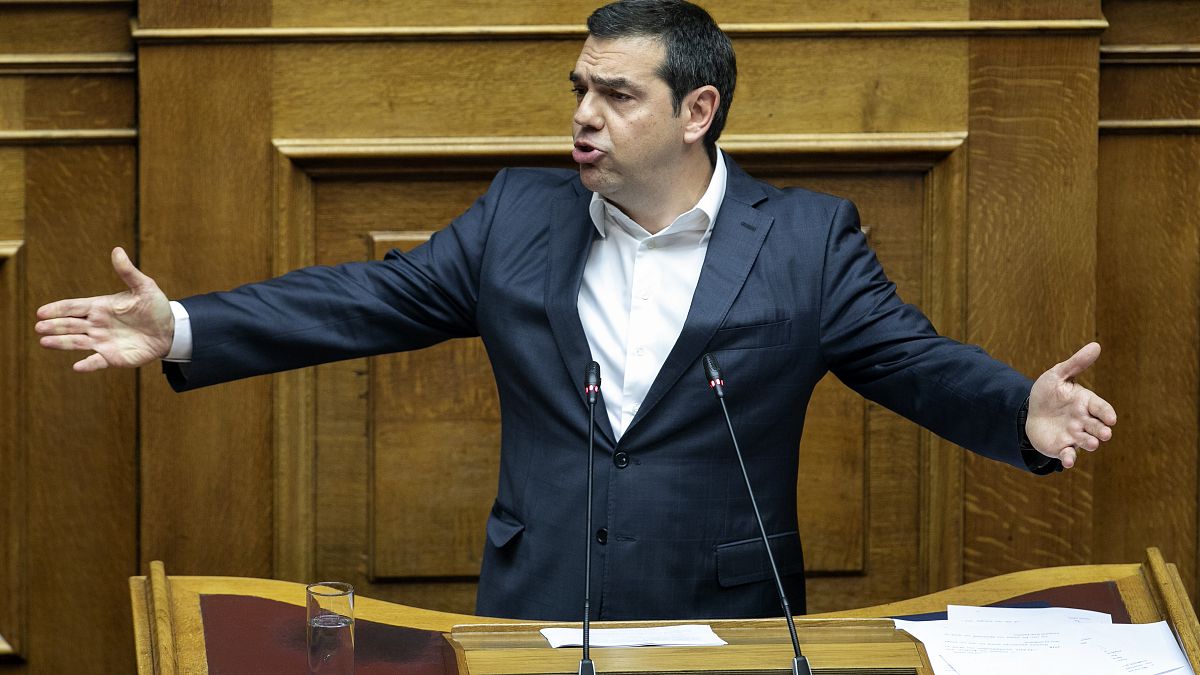A political dispute in Greece over the behaviour of senior politicians during the country's COVID-19 lockdown has escalated into personal barbs.
Competing claims that senior Greek politicians have broken COVID-19 lockdown restrictions have escalated into personal insults and accusations.
Kyriakos Mitsotakis under the spotlight over bike trip
Last week, the country's prime minister was accused by the leader of the main opposition Syriza party of violating his own regulations during a mountain bike ride.
Kyriakos Mitsotakis denied the allegations and said he was entitled to travel within the Athens region, during the country's second lockdown.
Viral images showed him posing without a mask alongside motorcyclists at Mount Parnitha, 45km north of Athens.
Mitsotakis' main rival, ex-PM Alexis Tsipras said his opponent had shown a "lack of empathy for citizens", and the Syriza party said his excuses were "ridiculous".
On Monday, Mitsotakis acknowledged that he had been wrong to be photographed without a mask, but added that his "small moment of carelessness was blown up out of proportion".
Government turns eyes on Tsipras
The government hit back against Syriza, citing articles in pro-conservative newspapers reporting that their leader, Tsipras, spent much of his time in a rented upscale seaside home.
Spokesperson Stelios Petsas said Tsipras had committed "political hypocrisy" by claiming that he was not living extravagantly during the health crisis.
For their part, Syriza described the response as a "desperate attempt to change the conversation amid the public outcry over the mishandling of the pandemic".
And on Tuesday, Tsipras published the lease contract of his home on his personal Facebook account, warning of legal action if the media reports are not retracted.
"This is not the first time that Mr Mitsotakis has chosen the mud to face his political opponents, at a time when he feels cramped," Tsipras said in a statement.
"Mud, cheap scandal, and populism seem to be deeply ingrained in his practices, despite the fact that he manages to appear as a supposed moderniser and institutional politician."
The lease documents show that the former prime minister pays €500 per month for a 71 sqm holiday home in the area of Lavreotiki, a property he rented in June.
Tsipras also stated that renovations to the property were previously done "under the sole responsibility of the owner" and that relevant documents had been submitted to the tax office.
"After all this and full transparency with the publication of every relevant item, I hope this mess of slander is finally over," the leader of Syriza said.
"They [the publishers] will be called by law to reconstruct and restore the truth to those who abused it. If they do not do as they should, I will exercise the rights provided by law," he went on. Tsipras also called for his rival to publish lease contracts in public.
But on Wednesday, the Prime Minister's New Democracy party said Tsipras' Facebook post had only raised further questions about his property.
"Who do they think they are kidding?" a party statement read.
How is Greece coping with its COVID-19 outbreak?
Mitsotakis' centre-right party has maintained a strong lead in opinion polls since taking office last year.
While Greece's initial infection rate for COVID-19 remained lower than many other European countries, there has been a recent surge in cases, and most of the 3,100 deaths in the country have occurred after November 1.
On Monday, the government stated that it will maintain core lockdown measures through the Christmas holidays, acknowledging that restrictions have not reduced COVID-19 cases as hoped.
Schools, courts, and restaurants will remain closed until January 8, while non-essential travel between Greece's administrative regions will also be banned. Those arriving in Greece before then will be required to go into precautionary quarantine for 10 days.
